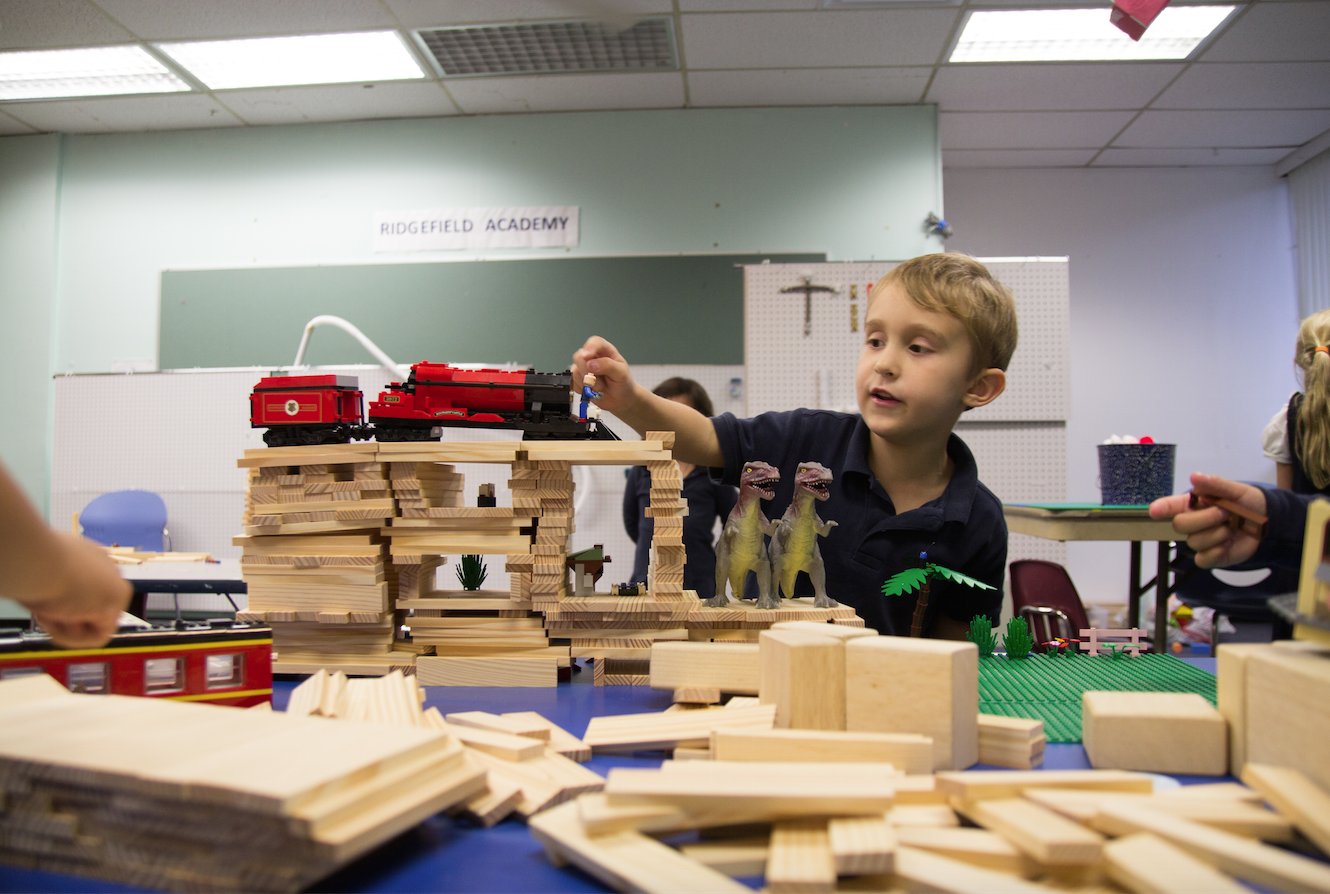
What, exactly, is a Tinker Lab?
The word “tinker” often calls to mind images of someone idly passing away time, lost in an impractical activity. At Ridgefield Academy, however, tinkering is serious play that leads to relevant learning. New this year, our Tinker Lab is a place where students, grades K through 3, have a chance to work, and play, with a variety of materials, exploring STEM concepts and solving problems creatively in the process.
This sounds impressive but why, exactly, does the Tinker Lab work?
One look at the empty Lab and you immediately sense the possibilities for learning. Every corner and table is stacked with Legos, blocks, dowels, pipes, marble runs and more. Add students to the mix, and the purposeful buzz in the room is palpable. Sometimes following independent curiosity and, at others, fulfilling design challenges presented by teachers, students are busy building, hypothesizing, testing theories and making adjustments. They’re celebrating their successes and learning from their setbacks. And whether they’re aware of it or not, they’re also very busy making connections between science, engineering and math concepts.
This interdisciplinary process, called integrated learning, is a key component of a Ridgefield Academy education. By giving students the opportunity to see the relationship between multiple disciplines and apply what they’re discovering during a hands-on project, they not only see how the skills they’re learning in the classroom have a practical application in the real world, they also recognize their own power to make an impact on that world.
“If we pull learning out of books and put it into a real world application, we just see a greater resonance with students,” says Basil Kolani, our Director of the Center for Innovative Teaching and Learning. “We start to figure out what interests them. We also start to change their minds about what interests them, because everything is much more engaging when it’s tangible and relatable, when they can experience it for themselves.
Why is this so important? In a world where technology is evolving at faster rate than we can keep up with, Educator Karl Fisch says, “We are currently preparing students for jobs that don’t yet exist, using technologies that haven’t been invented yet, in order to solve problems we don’t even know are problems yet.”
To be effective, then, education must shift from teaching students “what” they need to learn to “how” they need to learn.
Mr. Kolani says that this uncertainty is not only OK, it’s one of the best parts of being an educator and a student.
“In the face of an unsure future,” he says, “and of ever changing data and technology, if the outcome we want for our students is for them to be adaptable, we have to focus on communication, innovation, open-mindedness and creativity. What we really need to provide them with are the skills they’ll need to reason, problem-solve and to be versatile. Some of the best teachable moments occur as surprises that pop up in the form of an unexpected question, observation or summary. That’s when the magic happens; that’s when we really learn.”
Ridgefield Academy is currently accepting applicants for the 2016-2017 school year. To learn more about Ridgefield Academy and the application process, click here.